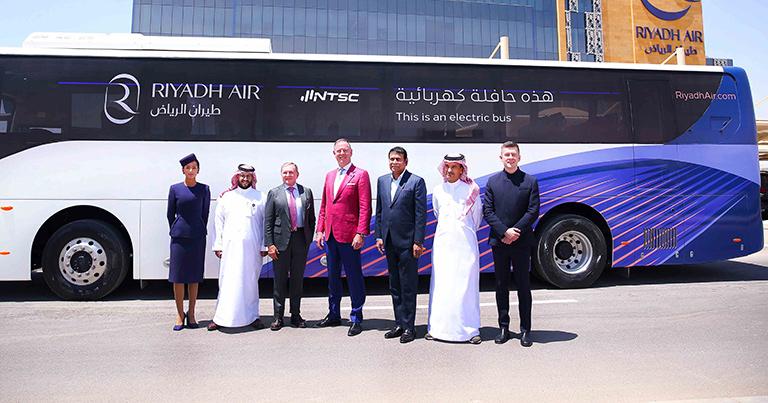Riyadh Air Launches First Electric Bus for Sustainable Transit
hyphen web desk

The electric bus, developed in partnership with leading green technology firms, aims to reduce the city's reliance on fossil fuels and lower greenhouse gas emissions. The vehicle is equipped with advanced battery technology, allowing it to travel extensive distances on a single charge, which is crucial for maintaining efficient urban transport networks.
This initiative aligns with Riyadh's broader environmental goals and the national Vision 2030 plan, which emphasizes sustainable development and the diversification of energy sources. The introduction of electric buses is expected to improve air quality in Riyadh, addressing both environmental and public health concerns.
The bus will operate on selected routes across the city, providing a testbed for the integration of electric vehicles into Riyadh's existing transit infrastructure. By doing so, Riyadh Air and its partners aim to demonstrate the viability of electric buses and encourage other transit operators to follow suit.
Key features of the electric bus include real-time tracking capabilities, which will help optimize routes and schedules, enhancing overall efficiency. Additionally, the vehicle's design incorporates energy-efficient systems to minimize power consumption and maximize the range between charges.
The launch event for the electric bus was attended by city officials, transportation experts, and representatives from Riyadh Air. During the event, speakers highlighted the importance of transitioning to cleaner modes of transportation and the role that such initiatives play in achieving sustainability goals.
The electric bus is expected to set a precedent for future investments in green transportation technologies within the region. As part of its long-term strategy, Riyadh Air plans to expand its fleet of electric vehicles and collaborate with other stakeholders to further advance the city's sustainable transit capabilities.
This development reflects a growing global trend towards eco-friendly transportation solutions, with many cities worldwide exploring similar initiatives. Riyadh Air's move underscores the increasing focus on integrating environmental considerations into urban planning and public transportation systems.
As the electric bus begins its service, it will undergo rigorous performance assessments to ensure it meets operational standards and contributes effectively to the city's sustainability objectives. The outcomes of these evaluations will likely influence future decisions regarding the adoption of additional electric vehicles in the city's transport network.
Overall, the introduction of the electric bus by Riyadh Air represents a forward-looking approach to urban transportation, combining technological innovation with environmental responsibility. The project's success could serve as a model for other cities in the region seeking to enhance their own sustainable transport initiatives.
Labels:
#Syndication
Share:
.png)